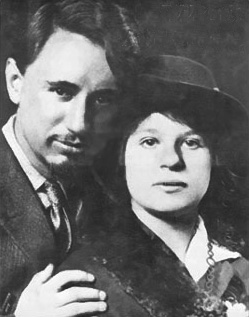„Religia jest sprawą naturalną, zrodzoną bezpośrednio z naszych instynktownych potrzeb.”
Źródło: cyt. za Sayyid Mujtaba Musavi Lari Poznać Boga, s. 7 http://www.al-islam.org.pl/images/poznac%20boga.pdf
William James Durant – amerykański historyk, filozof i pisarz. Zasłynął głównie dzięki napisaniu wspólnie ze swoją żoną Ariel Durant książki pod tytułem Historia cywilizacji . Napisał także książkę o historii filozofii. W 1977 roku wyróżniony Medalem Wolności.
Jest autorem cytatu: "Wielką cywilizację można pokonać od zewnątrz, dopiero gdy ulega rozkładowi od wewnątrz".
Cytat ten wykorzystał Mel Gibson w filmie Apocalypto, jako ostrzeżenie dla naszej cywilizacji.
Wikipedia

„Religia jest sprawą naturalną, zrodzoną bezpośrednio z naszych instynktownych potrzeb.”
Źródło: cyt. za Sayyid Mujtaba Musavi Lari Poznać Boga, s. 7 http://www.al-islam.org.pl/images/poznac%20boga.pdf
Źródło: The Story of Philosophy: The Lives and Opinions of the World's Greatest Philosophers
“Every science begins as philosophy and ends as art.”
The Story of Philosophy (1926)
“In philosophy, as in politics, the longest distance between two points is a straight line.”
Źródło: The Story of Philosophy: The Lives and Opinions of the World's Greatest Philosophers
The Case for India (1931)
Preface
The Story of Civilization (1935–1975), VI - The Reformation (1957)
Źródło: The Story of Civilization (1935–1975), VI - The Reformation (1957), p.g. 14
The Lessons of History (1968), p. 72 (co-authored with Ariel Durant)
When asked, at the age of 92, if he could summarize the lessons of history into a single sentence. As quoted in "Durants on History from the Ages, with Love," by Pam Proctor, Parade (6 August 1978) p. 12. Durant is quoting Jesus (from John 13:34) here, and might also be quoting Jiddu Krishnamurti: "Love is the most practical thing in the world. To love, to be kind, not to be greedy, not to be ambitious, not to be influenced by people but to think for yourself — these are all very practical things, and they will bring about a practical, happy society."
The Story of Civilization (1935–1975), I - Our Oriental Heritage (1935)
Źródło: The Story of Civilization (1935–1975), III - Caesar and Christ (1944), Chapter 30, part 1, p. 652.
“When liberty becomes license, dictatorship is near.”
The Story of Philosophy (1926)
Źródło: The Story of Civilization (1935–1975), VI - The Reformation (1957), p.g. 8
As quoted in Midnight by Dean Koontz
The Story of Civilization (1935–1975), XI - The Age of Napoleon (1975)
“No man who is in a hurry is quite civilized.”
Źródło: The Story of Civilization (1935–1975), II - Life of Greece (1939), Ch. XII : Work and Wealth in Athens, p. 277 http://books.google.com/books?id=l2wgAAAAMAAJ&q=%22no+man+who+is+in+a+hurry+is+quite+civilized%22&pg=PA277#v=onepage
“Civilization begins with order, grows with liberty, and dies with chaos.”
The Story of Philosophy (1926)
The Case for India (1931)
“A sensation is the feeling of an external stimulus or an internal condition.”
Źródło: Fallen Leaves (2014), Ch. 6 : Our Souls
“By mind I mean the totality of perceptions, memories and ideas in an organism.”
Źródło: Fallen Leaves (2014), Ch. 6 : Our Souls
“Time, subjectively, is the conscious sequence of perceptions.”
Źródło: Fallen Leaves (2014), Ch. 6 : Our Souls
“Space, subjectively, is the coexistence of perceptions — perceiving two objects at once.”
Źródło: Fallen Leaves (2014), Ch. 6 : Our Souls